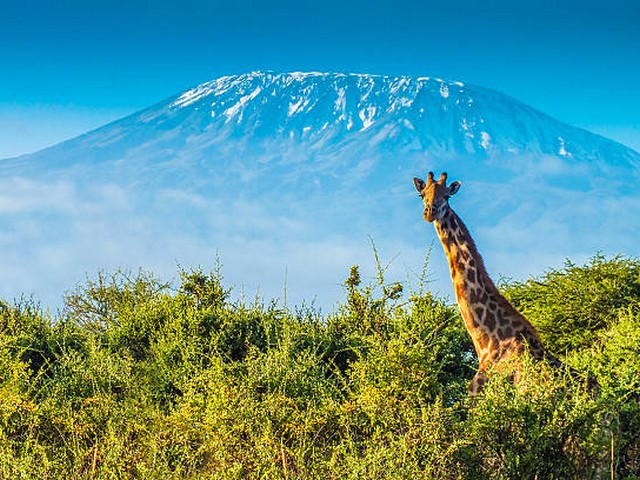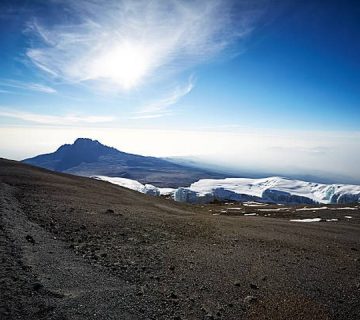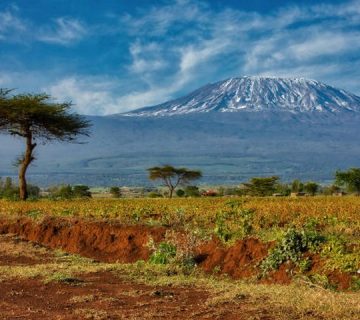Staying Safe On Kilimanjaro: Tips From Expert Guides
Ascending the majestic slopes of Mount Kilimanjaro, the highest peak in Africa, is a dream many adventurers yearn to fulfill. While the journey promises exhilarating views and triumphant moments, ensuring safety is paramount. Here at Kilimanjaro Centre for Trekking and Ecotourism (KCTE), we specialize in transforming your high-altitude dreams into secure and unforgettable experiences. In this detailed guide, we share essential safety tips straight from our expert guides to help you conquer Kilimanjaro with confidence and awe.
Preparing for Your Journey: A Foundation for Safety
Health Checks and Fitness
Before you even pack your hiking boots, a thorough health check is crucial. Consult with your doctor about your plans and undergo any necessary medical examinations. Fitness is another cornerstone of a safe climb. Incorporate cardiovascular training, strength exercises, and altitude acclimatization into your preparation. Our KCTE programs offer tailored fitness plans to get you trail-ready!
Gear Up Correctly
The right gear can make or break your climb. Invest in quality thermal clothing, a sturdy pair of hiking boots, and a warm sleeping bag rated for extreme cold. Don’t forget essentials like a headlamp, sunglasses, and sunblock. At KCTE, we provide a comprehensive gear checklist and offer rental options for top-notch equipment.
On the Trail: Tips from Kilimanjaro’s Finest Guides
Understand Altitude Sickness
Altitude sickness is a real concern on Kilimanjaro. Our seasoned guides are trained to recognize the symptoms early — from mild headaches to severe acute mountain sickness. We emphasize the motto, "pole pole" (slowly, slowly) to give your body time to adjust to the altitude. Hydration is key; drink plenty of water and avoid alcohol and caffeine.
Follow the Lead of Your Guide
Our KCTE guides are not only experts in navigating the terrain but are also equipped with essential wilderness first aid skills. Trusting their judgment and instructions can be lifesaving. They know when to push forward and when to call a day short for the safety of the team.
Weather Woes: Dealing with Kilimanjaro’s Climate
Kilimanjaro’s weather is notoriously unpredictable. Prepare to face heavy rain, strong winds, and intense sun, sometimes all within the same day. Our guides are adept at reading weather changes and will adjust the trekking plan accordingly. Layering your clothes will allow you to adapt to varying temperatures comfortably and safely.
Environmental Awareness and Respect
Protecting the fragile ecosystem of Kilimanjaro is a responsibility we take seriously at KCTE. Stick to designated trails, carry out all trash, and respect wildlife regulations. Remember, a safe climb is also an environmentally conscious one.
After the Descent: Post-Trek Recovery
Reaching the summit is exhilarating, but the journey back down requires caution. The descent can be tough on your knees and increases the risk of slipping. Our guides will help you navigate safely, using poles and taking regular breaks. Post-trek, allow your body to rest and recover before jumping back into more strenuous activities.
Why Climb Kilimanjaro with KCTE?
Choosing KCTE means opting for an experienced, responsible, and community-oriented tour operator. Our expert guides enhance your chances of a safe and successful summit. We offer a range of routes and customizable options to suit every adventurer’s needs. More than just a climb, it’s an immersive experience that promises personal growth and a profound connection with nature.
FAQs: Expert Answers to Your Kilimanjaro Queries
What is the best time of year to climb Kilimanjaro?
The best times to climb Kilimanjaro are during the dry seasons: January to mid-March and June to October. These months offer the clearest and warmest conditions.
How long does it take to climb Kilimanjaro?
Most routes take between 5 to 8 days. We recommend routes that allow more time for acclimatization, which can significantly increase your success rate.
What are the main risks of climbing Kilimanjaro?
The main risks include altitude sickness, dehydration, and hypothermia. Choosing a reputable tour operator like KCTE ensures you have expert guides who manage these risks effectively.
Can beginners climb Kilimanjaro?
Yes, Kilimanjaro is a non-technical mountain, making it accessible to beginners who are physically fit and well-prepared. Our KCTE guides provide support every step of the way.
Ready to Embark on Your Kilimanjaro Adventure?
Embracing the challenge of Kilimanjaro requires courage, preparation, and the right team by your side. At Kilimanjaro Centre for Trekking and Ecotourism (KCTE), we are dedicated to providing a safe, enriching, and exhilarating climbing experience. Join us to make your Kilimanjaro dream a reality, where every step you take is a step towards making lifelong memories. Contact us today to start planning your adventure with the utmost confidence. Let’s conquer the roof of Africa together!
Embark on your journey safely and inspiringly – choose KCTE for an adventure that goes beyond just reaching the summit.




